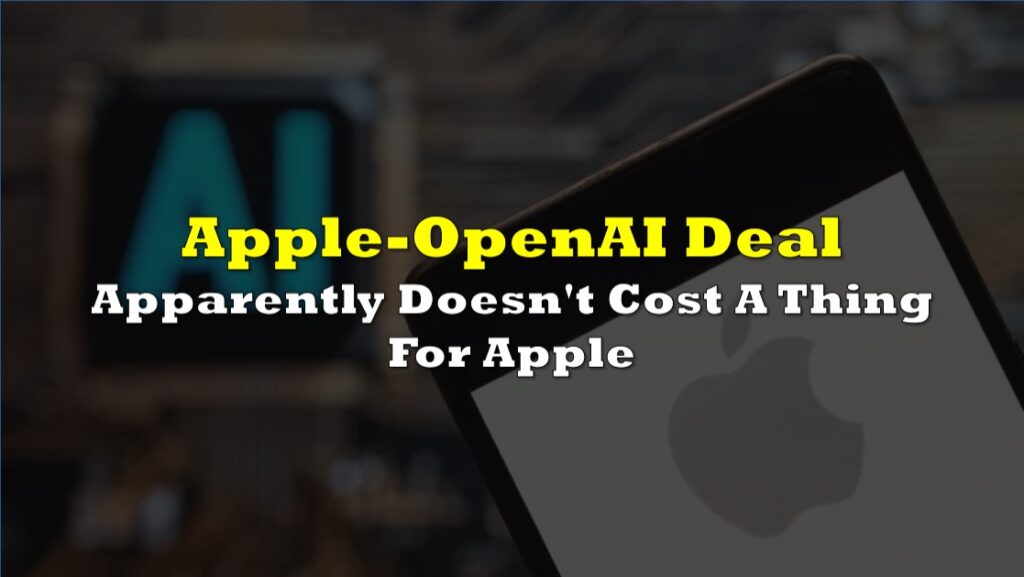Given the major shifts in the entertainment industry, a path has elucidated on how a long-mulled Apple-Disney deal could be possible. Business Insider’s Lucia Moses broke down the potential Disney assets that would be fit for the tech giant and found that one could make sense: ESPN.
In a strategic maneuver marking his second tenure as CEO of Disney, Bob Iger has unveiled a bold plan for the media giant. As part of his vision, Iger has put a “for-sale” sign on Disney’s linear TV assets, which encompass ABC and prominent cable networks like FX and National Geographic. Additionally, Iger has expressed his intention to seek content or distribution partners to facilitate ESPN’s direct-to-consumer aspirations.
These recent developments have reignited long-standing speculation about the possibility of Disney selling all or part of itself to tech behemoth Apple. Some industry insiders believe that Iger’s ultimate objective is to streamline Disney by divesting assets, focusing on core elements such as the film studio and the booming streaming business, thereby making Disney more appealing to potential buyers.
The synergy between Disney and Apple has been evident for years. The late Steve Jobs, co-founder of Apple, shared a close working relationship with Iger, culminating in Disney’s acquisition of Pixar. This connection extended even further, with Iger serving on Apple’s board until 2019. The relationship has persisted under Apple’s current CEO, Tim Cook, as evidenced by their joint announcement in June regarding content creation for Apple’s Vision Pro mixed-reality headset.
From a financial perspective, Apple certainly possesses the means to make such a move, boasting an impressive $62 billion in cash and cash equivalents alongside a staggering $2.8 trillion market capitalization, dwarfing Disney’s $151 billion valuation.
However, critics have argued that Apple, known for guarding its distinctive corporate culture, has historically avoided major acquisitions with no detrimental impact on its success. Gregg Abella, CEO of Investment Partners Asset Management, articulated this viewpoint succinctly: “Not doing a big deal hasn’t impacted them, and if it ain’t broke, don’t fix it.”
Yet, the question remains: if Disney were to sell, what assets would be on the table? Iger has emphasized the enduring value of Disney’s studio, streaming, and parks divisions, with plans to invest a substantial $60 billion in the latter over the next decade. These three segments are intrinsically linked by Disney’s iconic intellectual property, making it challenging to envision operating the parks or streaming businesses without owning the beloved franchises that drive them.
David Rogers, a business professor at Columbia University and author of “The Digital Transformational Roadmap,” emphasized the centrality of Disney’s parks and studios to the company’s history, underscoring their profitability.
However, Apple’s potential acquisition of theme parks and cruise lines would represent a significant strategic departure, not to mention a substantial cultural shift. Apple has shown little interest in purchasing studios, despite the clamor for more content, especially the valuable intellectual property held by Disney, to bolster its streaming service, AppleTV+. Moreover, Apple is not typically listed among potential buyers for Disney’s struggling linear TV assets.
READ: Apple Makes Bold Entry into Augmented Reality Market with Vision Pro Headset
Nonetheless, one asset that may pique Apple’s interest is ESPN. Disney has signaled its willingness to explore options for the sports broadcasting giant, particularly in the context of launching a streaming version of ESPN. To achieve this goal, Disney recognizes the need for distribution and marketing partners to generate sufficient revenue from viewers and advertisers, supporting the costly sports rights that underpin the platform.
Reports suggest that Disney has been in discussions with potential partners with significant distribution potential, including Verizon and Amazon. Apple’s entry into the sports streaming arena has been gradual, but recent moves, such as the MLS-Messi partnership, have led to a surge in signups for AppleTV+, according to Antenna data.
For Apple, the acquisition of ESPN could serve as a catalyst for driving viewership and subscriptions to AppleTV+, a crucial component of its growing services business, which, in turn, fuels sales of its core devices.
Dan Ives, a prominent analyst at Wedbush Securities and a staunch Apple advocate, has advocated for Apple to acquire ESPN. He views sports content as a pivotal element in Apple’s streaming future, suggesting that while Apple could secure its sports rights, many are tied up for years. Partnering with ESPN could offer a comprehensive solution. Ives envisions a scenario where Apple gains exclusive access to ESPN content and game broadcasts, with an acquisition potentially following later. He estimates the cost of acquiring ESPN for Apple to be close to $50 billion.
Given the potential benefits that ESPN could bring to Apple’s streaming ambitions, Ives believes that Apple is unlikely to allow it to fall into the hands of competing tech rivals. He noted, “Google and Meta will likely eye live sports content as well. Amazon, due to its Prime membership, would face increased scrutiny from regulatory bodies. But ultimately, I think the only serious bidder would be Apple. It checks every box, and they want live sports content – that would be a massive growth engine. I believe it’s a matter of not if, but when Apple buys ESPN.”
In conclusion, Bob Iger’s strategic maneuvers at Disney have sparked renewed speculation about a potential merger with Apple, with ESPN emerging as a prime asset of interest. While Apple’s history of avoiding major acquisitions and potential regulatory hurdles loom as obstacles, the allure of ESPN’s sports content remains a tantalizing prospect in the ever-evolving landscape of media and technology.
Information for this story was found via Business Insider and the sources and companies mentioned. The author has no securities or affiliations related to the organizations discussed. Not a recommendation to buy or sell. Always do additional research and consult a professional before purchasing a security. The author holds no licenses.









